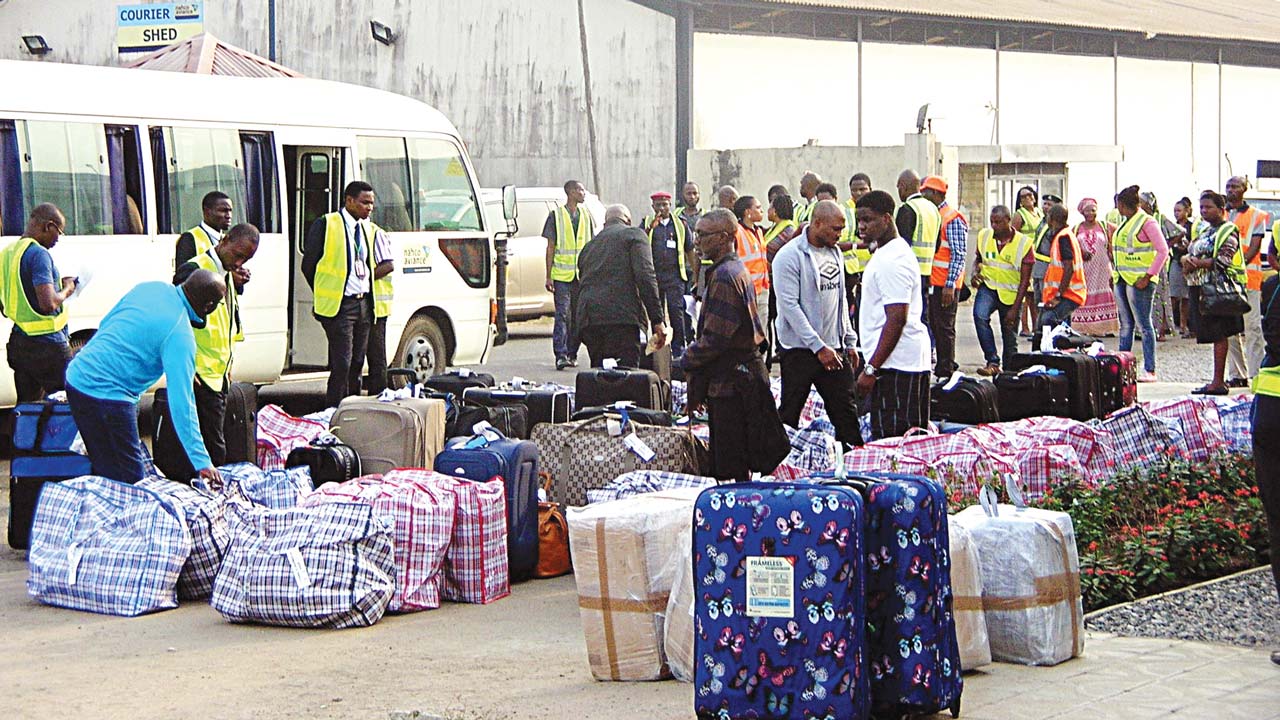- African Migrants Face ‘unimaginable horrors’ in Libya – UN
Migrants and refugees are being subjected to “unimaginable horrors” from the moment they enter Libya and throughout their stay in that country, a UN report has stated.
The report, released by the United Nations Political Mission in Libya and the UN Human Rights Office, also showed the horrors of attempting to cross the Mediterranean.
The findings were based on 1,300 first-hand accounts gathered by UN human rights staff in Libya itself as well as from migrants who had returned to Nigeria.
It also featured accounts of Nigerians who managed to reach Italy, tracing the entire journey of migrants and refugees from Libya’s southern border across the desert to the northern coast.
“There is a local and international failure to handle this hidden human calamity that continues to take place in Libya,” said Ghassan Salamé, head of UNSMIL.
From unlawful killings, arbitrary detention and torture, to gang rape, slavery, and human trafficking, the report covers a 20-month period up to August 2018.
It detailed a terrible litany of violations and abuses committed by a range of state officials, armed groups, smugglers and traffickers against migrants and refugees.
The climate of lawlessness in Libya provides fertile ground for illicit activities, leaving migrants and refugees “at the mercy of countless predators who view them as commodities to be exploited and extorted,” the report said.
It noted that “the overwhelming majority of women and older teenage girls” report having been “gang raped by smugglers or traffickers.”
Many people were sold from one criminal group to another and held in unofficial and illegal centres run directly by armed groups or criminal gangs.
The report said: “Countless migrants and refugees lost their lives during captivity by smugglers after being shot, tortured to death or simply left to die from starvation or medical neglect.
“Across Libya, unidentified bodies of migrants and refugees bearing gunshot wounds, torture marks and burns are frequently uncovered in rubbish bins, dry river beds, farms and the desert.’’
Those who managed to survive the abuse and exploitation, and attempted the perilous Mediterranean crossing, were increasingly being intercepted or “rescued” by the Libyan Coast Guard.
Since early 2017, the approximately 29,000 migrants returned to Libya by the Coast Guard were placed in detention centres where thousands remained indefinitely and arbitrarily without due process or access to lawyers or consular services.
UN staff visiting 11 detention centres, where thousands of migrants and refugees were being held, documented torture, ill-treatment, forced labour and rape by the guards.
Migrants held in the centres were systematically subjected to starvation and severe beatings, burned with hot metal objects, electrocuted and subjected to other forms of ill-treatment with the aim of extorting money from their families through a complex system of money transfers.
The detention centres were characterised by severe overcrowding, lack of ventilation and lighting and insufficient washing facilities and latrines.
In addition to the abuses and violence committed against the people held there, many of them suffered from malnutrition, skin infections, acute diarrhoea, respiratory-tract infections and other ailments as well as inadequate medical treatment.
Children are held with adults in the same squalid conditions, the report found.
The report pointed to the apparent “complicity of some state actors, including local officials, members of armed groups formally integrated into state institutions and representatives of the Ministry of Interior and Ministry of Defence in the smuggling or trafficking of migrants and refugees.”
The UN independent human rights expert on torture, Nils Melzer, estimated that given the risks of facing human rights abuses in the country, transfers and returns to Libya could be considered a violation of the international legal principle of “non-refoulement”.
Non-refoulement protects asylum seekers and migrants against returns to countries where they have reason to fear violence or persecution.
The UN High Commissioner for Human Rights, Ms Michelle Bachelet, while reacting to the condition faced by migrants and refugees in Libya, said: “The situation is utterly dreadful”.
“Tackling the rampant impunity would not only end the suffering of tens of thousands of migrant and refugee women, men and children seeking a better life, but also undercut the parallel illicit economy built on the abuse of these people and help establish the rule of law and national institutions,” Bachelet said.
The report called on European States to reconsider the human costs of their policies and ensure that their cooperation and assistance to the Libyan authorities are respectful of human rights and in line with international human rights and refugee law.
This is to ensure that they do not, directly or indirectly result in men, women and children being trapped in abusive situations with little hope of protection and remedy, the report said.
(NAN)


 Billionaire Watch3 weeks ago
Billionaire Watch3 weeks ago
 Startups4 weeks ago
Startups4 weeks ago
 News4 weeks ago
News4 weeks ago
 News4 weeks ago
News4 weeks ago
 Bitcoin4 weeks ago
Bitcoin4 weeks ago
 Naira4 weeks ago
Naira4 weeks ago
 Forex3 weeks ago
Forex3 weeks ago
 Treasury Bills4 weeks ago
Treasury Bills4 weeks ago


























